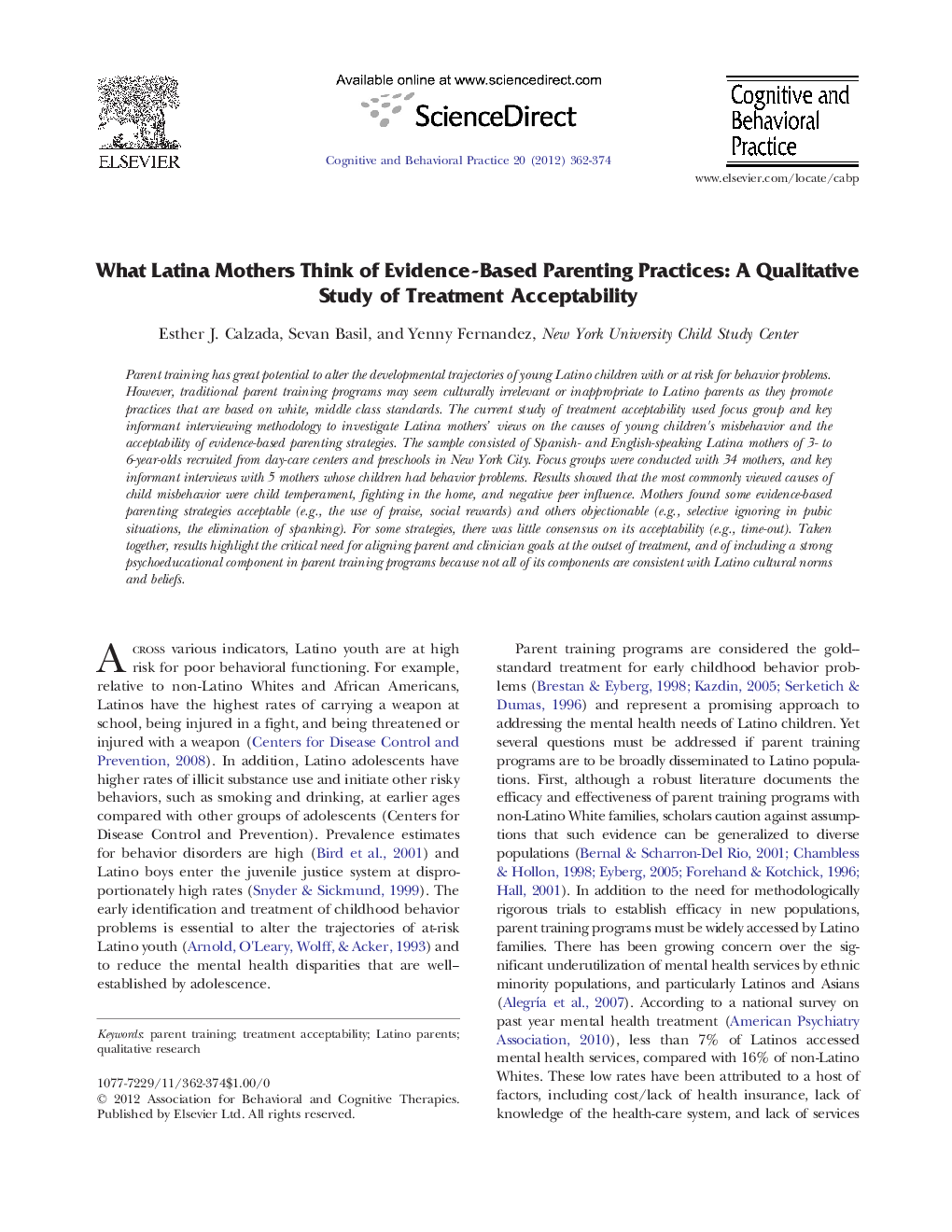ترجمه فارسی عنوان مقاله
مادران لاتین درباره شیوه های فرزندپروری مبتنی بر شواهد چگونه فکر می کنند: یک مطالعه کیفی از مقبولیت درمان
عنوان انگلیسی
What Latina Mothers Think of Evidence-Based Parenting Practices: A Qualitative Study of Treatment Acceptability ☆☆☆
| کد مقاله | سال انتشار | تعداد صفحات مقاله انگلیسی |
|---|---|---|
| 76617 | 2013 | 13 صفحه PDF |
منبع

Publisher : Elsevier - Science Direct (الزویر - ساینس دایرکت)
Journal : Cognitive and Behavioral Practice, Volume 20, Issue 3, August 2013, Pages 362–374
ترجمه کلمات کلیدی
آموزش والدین ؛ پذیرش درمان؛ والدین لاتین؛ تحقیق کیفی
کلمات کلیدی انگلیسی
parent training; treatment acceptability; Latino parents; qualitative research

